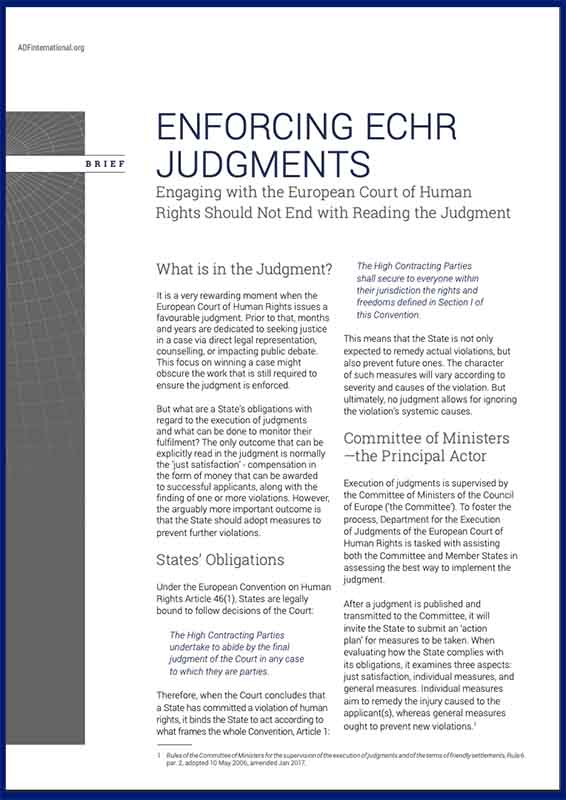Brief
Engaging with the European Court of Human Rights Should Not End with Reading the Judgmen
It is a very rewarding moment when the European Court of Human Rights issues a favourable judgment. Prior to that, months and years are dedicated to seeking justice in a case via direct legal representation, counselling, or impacting public debate. This focus on winning a case might obscure the work that is still required to ensure the judgment is enforced.
But what are a State’s obligations with regard to the execution of judgments
and what can be done to monitor their fulfilment? The only outcome that can be explicitly read in the judgment is normally the ‘just satisfaction’ – compensation in the form of money that can be awarded
to successful applicants, along with the finding of one or more violations. However, the arguably more important outcome is that the State should adopt measures to prevent further violations.




